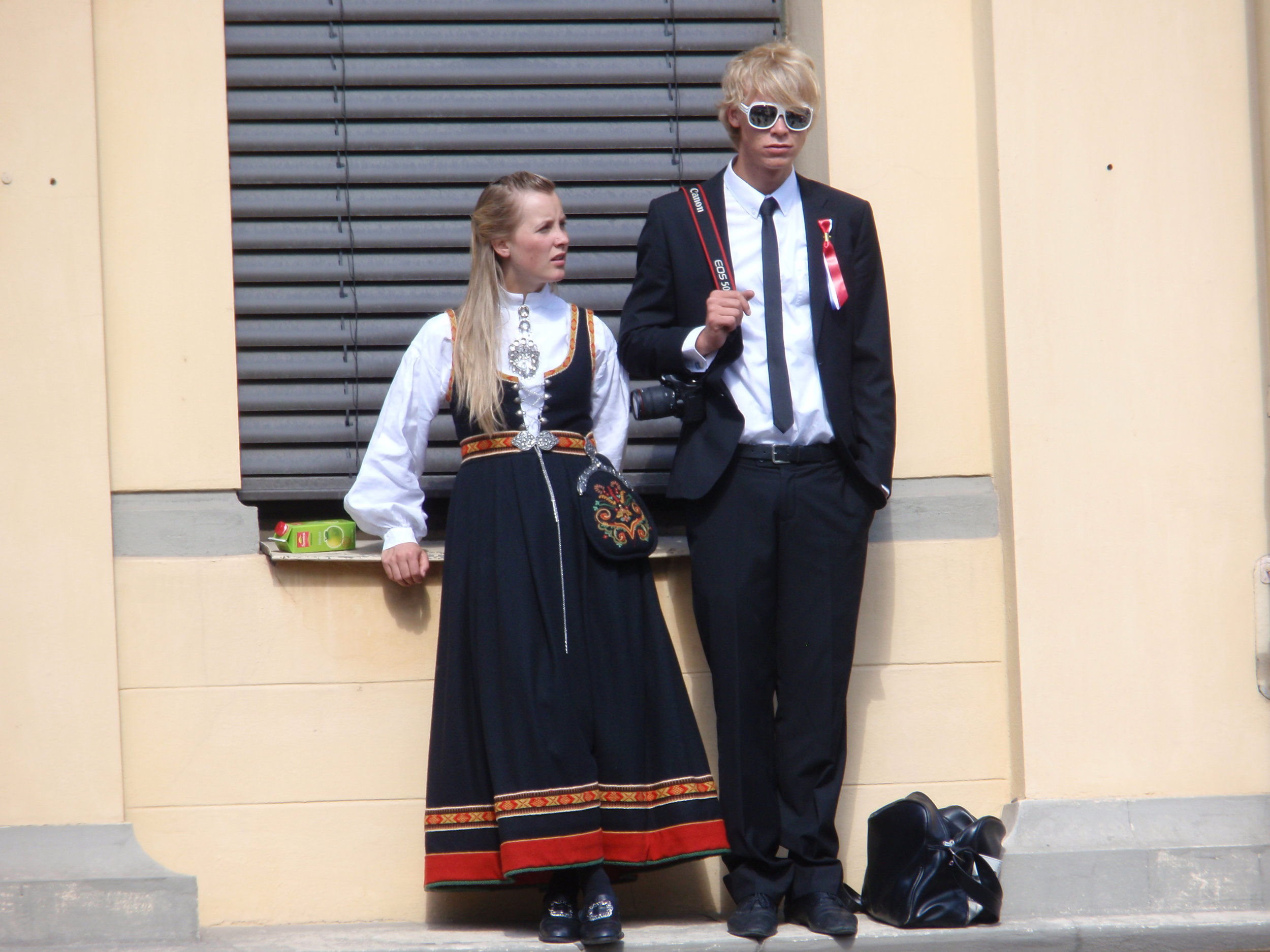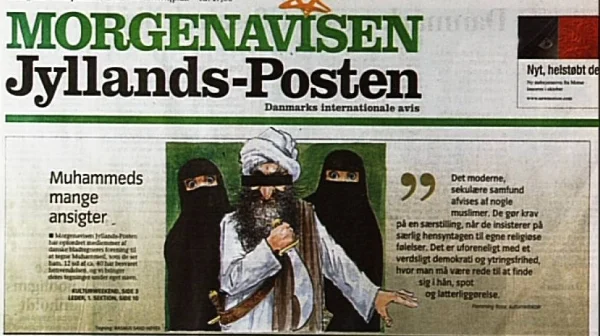Elegy for the Sons of Asgard
Robert Ferguson: Scandinavians
The Wall Street Journal, August 2, 2017
Baltic Sea, Stockholm-Helsinki, August 1980 © Andrew Stuttaford
Robert Ferguson’s “Scandinavians” is not a book for the beach, but it might well fit the bill on a distant northern shore, with the fog rolling in and memories of long ships stirring. Discursive, meandering, sometimes beautifully written, it presents a historical narrative punctuated by reminiscences, conversations retold, snatches of autobiography, fragments of biography and stories added, one suspects, solely for their strangeness.
Oslo, Norway, May 17, 2009 © Andrew Stuttaford
We learn, for instance, about Olof Rudbeck (1630-1702), scientist, engineer, architect, musician and botanist. “Of all [the] claims for Rudbeck’s polymathic genius,” Mr. Ferguson writes, “none can compare in its scope, its vision, its ingenuity and its sheer weirdness” with his discovery that Atlantis had been located in Sweden and that Swedish was “the proto-language from which Greek, Latin and Hebrew all derived.” Rudbeck devised, Mr. Ferguson suggests, “a golden past worthy of Sweden’s golden present”—in the 17th century, the country was a European superpower. The stormaktstiden (the great power era) didn’t last long, nor did Rudbeck’s reputation. Even so, nowadays he is remembered sympathetically in Sweden for his account of the country’s origins, a saga “in which facts, dreams, myth and waking life, historical personages, biblical and mythological figures merge and flow and part in a mesmerizing drift.”
Stockholm, Sweden, December 2010 © Andrew Stuttaford
Mr. Ferguson, whose earlier books include a history of the Vikings, as well as biographies of Henrik Ibsen and Knut Hamsun, is a rather more reliable source. A Briton, he first traveled to Scandinavia at the tail end of the 1960s with a friend (“He looked like Withnail and I looked like I”). Despite an unglamorous stint in Copenhagen (Withnail was eventually deported for trying to shoplift some cheese), Mr. Ferguson fell for the place. He obtained a degree in Scandinavian studies and, not long after, took up a Norwegian government scholarship to study in that country for a year. It’s not much of a spoiler to reveal that he’s still in Norway today.
Arlanda Airport, Stockholm, Sweden, June 2011
The book’s subtitle (“In Search of the Soul of the North”) makes “Scandinavians” sound more daunting than it is. If there is a search going on, the author is in no hurry to find what he is looking for. Instead we are left with an idea—no more than that—of these lands and the three taciturn tribes that make up the bulk of their population. To an outsider, Norwegians, Swedes and Danes seem to be cast from the same mold, but—as I know well from three decades of working alongside them—that is far from the case. Mr. Ferguson touches on this, but too lightly.
Over southern Norway, March 2015 © Andrew Stuttaford
The history that he retells—Vikings, wars, monarchs, writers, philosophers—is an overview, operating both as necessary background and an invitation to dig more deeply. The grand old gods make their inevitable appearance and so does the tale of their demotion, a transition commemorated in 10th-century Denmark by a massive stone that features the earliest known depiction of Jesus in Scandinavian art, a “fierce-eyed warrior ready to jump down from his cross and do battle with the demons of heathendom.” As Mr. Ferguson observes (and as the first missionaries to these unpromising territories understood), “the suffering Christ had no natural appeal among those who formerly worshipped masters of violence like Odin and Thor.”
Oslo, Norway, May 2017 © Andrew Stuttaford
Even once they had dispensed with those roughnecks from Asgard, it took a while for the Swedes, Danes and Norwegians to succumb to that whole “love thy neighbor” thing. The Kalmar Union of 1397 among the three countries lasted barely more than a century: Sweden broke away, although the Norwegians sank into what they cheerfully refer to as their “400-year night” under the Danes. Meanwhile, the Swedes sliced away at Denmark’s domain over the years, finally annexing Norway in 1814.
Hotorget, Stockholm, Sweden, September 2016 © Andrew Stuttaford
Only nine decades later, Norway split off from Sweden. This history, differing patterns of economic development and subsequent events, not least sharply contrasting experiences of World War II, helps explain some of the distinctions among Denmark, Norway and Sweden today. Nevertheless all three adopted strikingly egalitarian forms of social democracy bolstered by an insistence on self-effacement in the interests, as Mr. Ferguson puts it, “of the greater good of social harmony.” In more recent years, this emphasis on conformity has become, paradoxically, a threat to the harmony it was designed to protect.
Husby, Stockholm, Sweden, September 2016 © Andrew Stuttaford
These societies are now undergoing possibly their most consequential transformation in centuries, “immigration on a scale unprecedented in the recorded history of the region.” Yet particularly in Sweden—a country marked, in Mr. Ferguson’s dismayingly accurate opinion, by “an almost pathological fear of socially conservative views and a demonization of those who hold them”—the inflow has been, in the main and for too long, waved through with too little of the debate it deserved. The situation is somewhat different in Norway and Denmark, but Sweden’s democracy has been damaged by the treatment of those disinclined to join the elite’s passionate embrace of “globalized culture.” Add in the effects of the immigration itself, and it’s easy to imagine a future in which the past will be sorely missed.
Stockholm, Sweden, February 2011 © Andrew Stuttaford
Decades ago Mr. Ferguson set out to live “in what was essentially a nineteenth-century dream of Norway,” and when he arrived there this was in a certain sense possible. Norway, Sweden and Denmark were—particularly before cheap travel, the internet and all the rest—both physically and mentally somewhat remote from the European “mainland.” But since then, Mr. Ferguson writes, there has been a “slow-motion tsunami of change,” and the author has “felt an increasing desire to look back” before these societies “change out of all recognition.” This book may be an introduction to the Scandinavians, but it is also an elegy.
Note: Appeared in the August 3, 2017, print edition as 'Northern Lights.'
Stockholm, Sweden, December 2009 © Andrew Stuttaford











